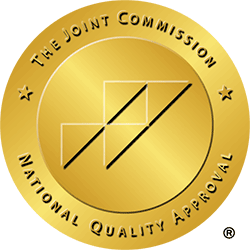Addiction and mental health issues often go hand in hand. Many people struggling with substance use disorders also live with depression, anxiety, PTSD, or other psychiatric conditions — a situation known as co-occurring disorders or dual diagnosis. At BriteLife Recovery, we understand that treating addiction in isolation is rarely enough. That’s why we offer integrated, evidence-based care designed to address both mental health and substance use together.
What Are Co-Occurring Disorders?
Co-occurring disorders refer to the presence of both a substance use disorder and a mental health condition at the same time. Some of the most common combinations include:
- Alcohol or drug use with depression
- Opioid addiction with anxiety disorders
- Stimulant use with bipolar disorder
- PTSD (often from trauma) with substance misuse
Each condition can make the other worse. For example, someone may use substances to self-medicate mental health symptoms, but drug or alcohol use can then intensify depression or anxiety.
Why Integrated Treatment Matters
Treating addiction without addressing mental health issues is like putting a bandage on only part of the wound. Without integrated care, individuals face:
- A higher risk of relapse
- Ongoing mental health struggles
- Difficulty engaging fully in treatment
- Poor long-term outcomes
At BriteLife Recovery, we use an integrated treatment model, meaning we provide simultaneous care for both the addiction and the mental health condition. This approach increases the likelihood of long-term success and helps clients build a stable, healthy future.
BriteLife’s Dual Diagnosis Approach
Our team at BriteLife includes licensed therapists, psychiatrists, medical providers, and addiction specialists who work together to create individualized treatment plans. Some of the services we offer for clients with co-occurring disorders include:
- Comprehensive psychiatric evaluations
- Individual and group therapy
- Medication management (when appropriate)
- Trauma-focused care
- Skills-building for emotional regulation and coping
We recognize that no two individuals have the same story. Whether someone is struggling with long-standing depression or has recently developed anxiety alongside substance use, our team tailors treatment to meet those specific needs.
Long-Term Support for Mental Health and Recovery
Recovery is not a quick fix — it’s a lifelong journey. At BriteLife, we emphasize relapse prevention planning and ongoing mental health care, ensuring that clients leave treatment with the tools and support they need to maintain stability. We also offer referrals to outpatient services, support groups, and aftercare programs to help clients continue their progress after they leave our care.
If you or a loved one is struggling with addiction and mental health challenges, you are not alone. Contact us today to learn how we can help you start the path to healing.



